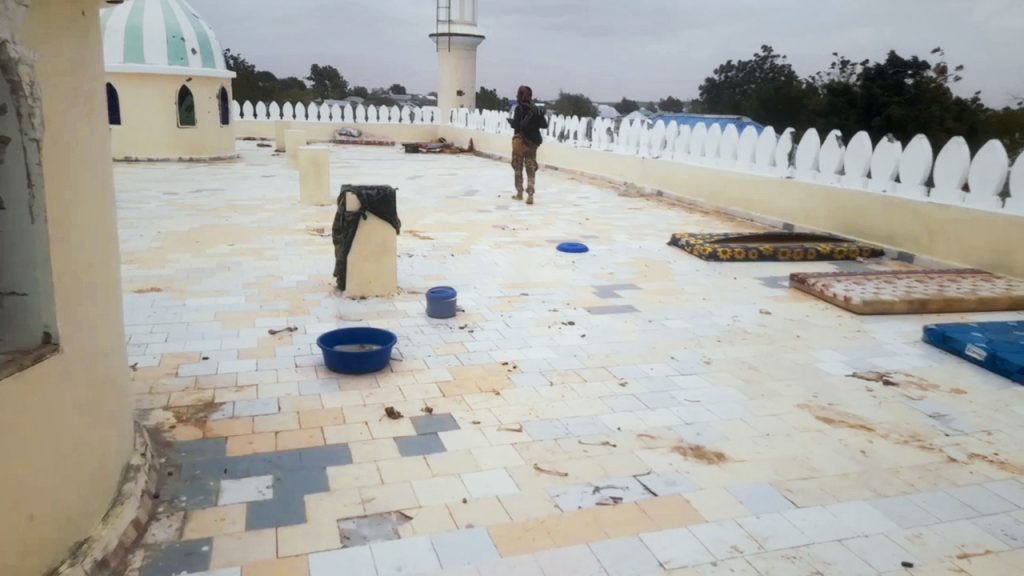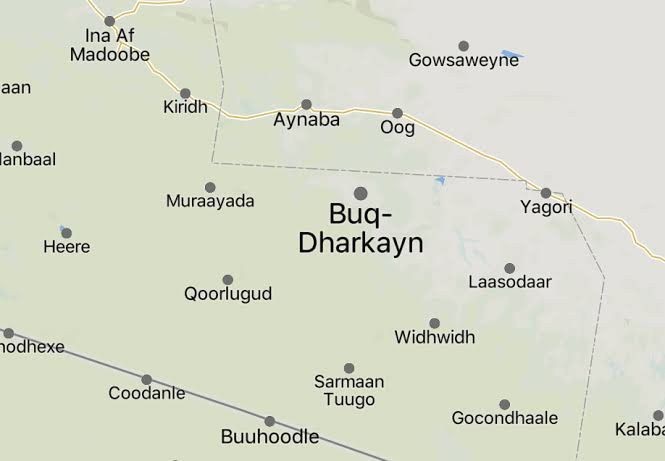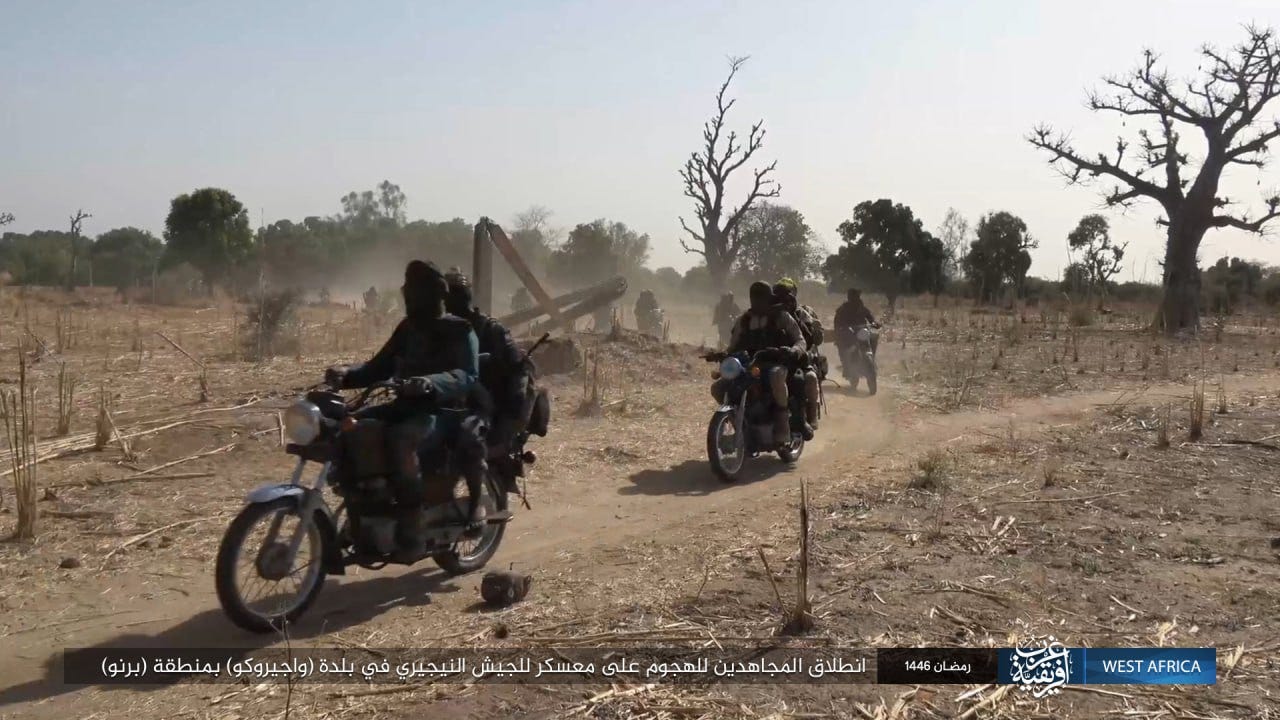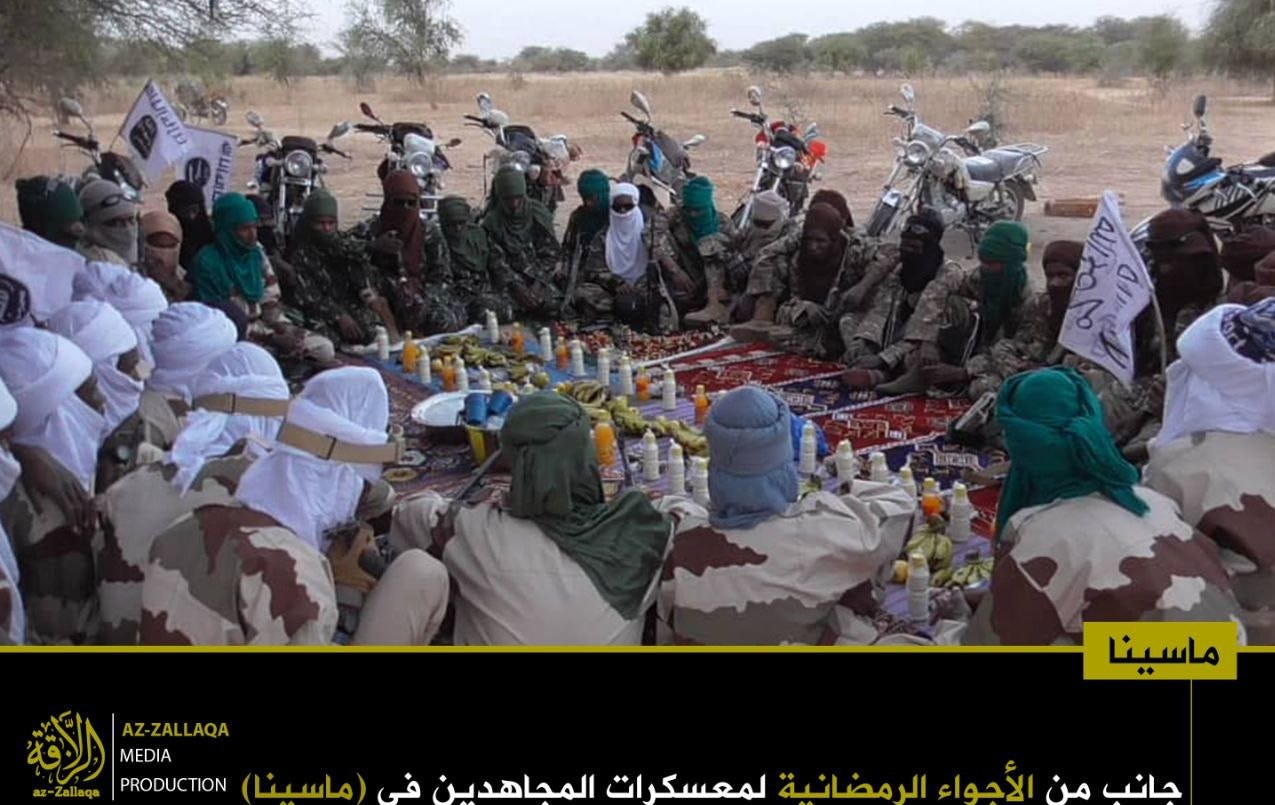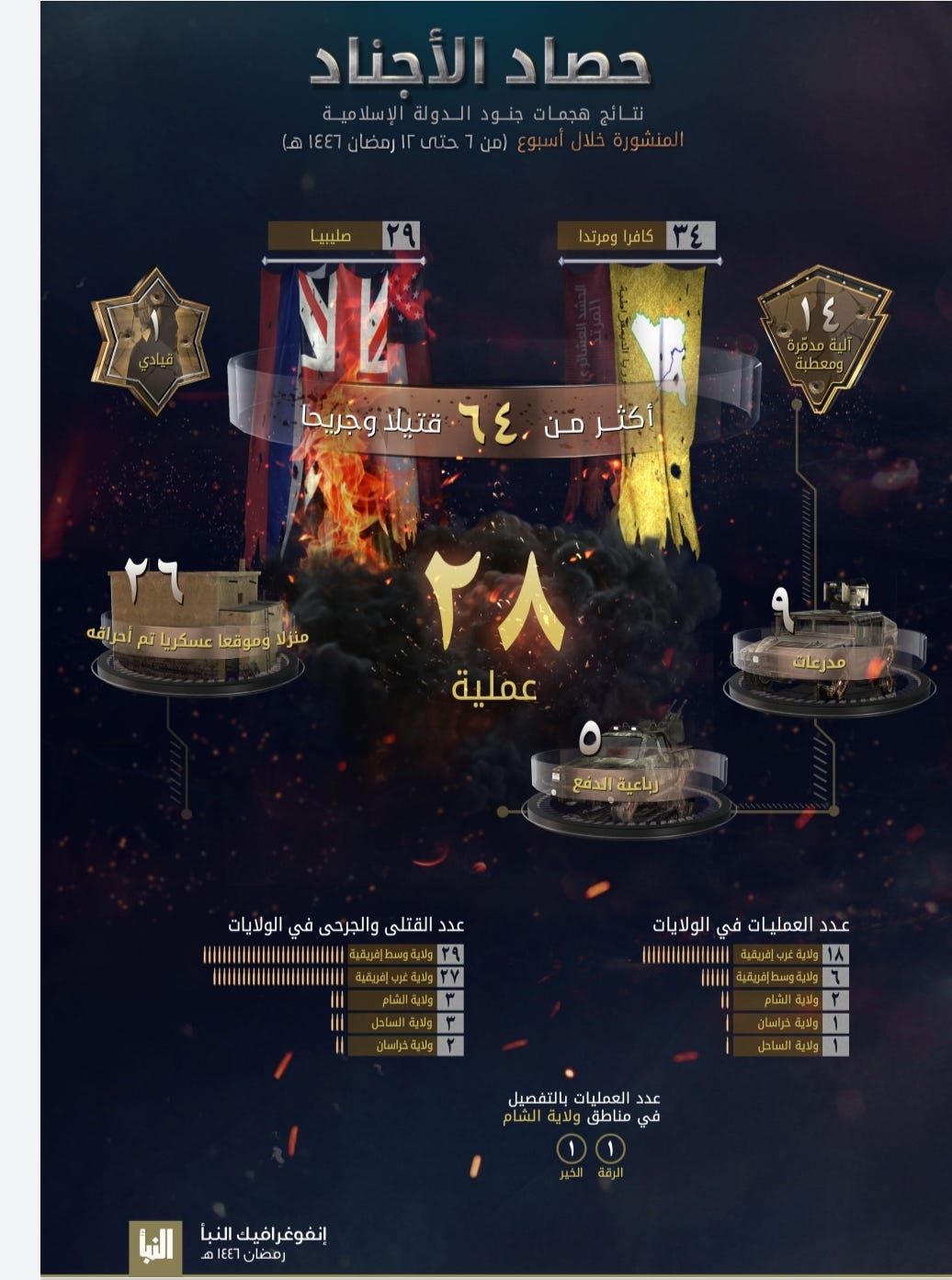Weekly Sub-Saharan Africa Security Situation and Key Developments ( 8-14 March)
Somalia
Somalia Forces are struggling to respond to Al-Shabaab’s attacks in the Middle Shabelle and Hiiraan regions. Over the weekend, the town of Lama Garas in Middle Shabelle was attacked by the Al-Shabaab terrorist group. The city fell under the control of the militants, and counterattacks launched by Somali security forces were unsuccessful. Al-Shabaab published photos related to the repelled attack, showing several Somali soldiers.
The group also attacked and captured Boos Hareeri. Following the retreat of Somali forces, Al-Shabaab entered Al Kowsar without resistance. Reports indicate that Ethiopian troops have been deployed to Middle Shabelle to halt the group's advance. This deployment could also facilitate the withdrawal of Burundian troops operating outside the framework of the AUSSOM.
In Bursha Sheikh, Somali forces launched an operation to reclaim territory controlled by the militants, but the effort failed. Al-Shabaab claimed to have repelled the attack and neutralized numerous soldiers.
The largest attack by Al-Shabaab this week occurred at the Cairo Hotel in Beledweyne, Hiiraan. The hotel, which housed key figures involved in government and militia operations against Al-Shabaab, was first targeted with a suicide car bomb. This was followed by a gun attack, during which the militants took control of the hotel.
After about 15 hours, government forces, with support from Burundian troops, lifted the siege and reclaimed the hotel. Some reports suggest that the attackers managed to escape. Officials stated that six people were killed in the attack, while Al-Shabaab claimed that 20 people, including four key leaders, had died.
Somalia National Intelligence Service, with the support of international partners, conducted a series of airstrikes. According to official statements, a large number of Al-Shabaab militants were neutralized. Defense Minister announced that, with assistance from undisclosed international partners, 150 Al-Shabaab terrorists had been killed in airstrikes over two days.
In the Puntland region, the third phase of operations against ISIS resulted in security forces capturing militant bases and neutralizing a drone operator. Additionally, the United Arab Emirates (UAE) carried out an airstrike in the region.
In the town of Buqdharkayn, fierce clashes erupted between Somaliland and SSC Khaatumo forces. Both sides accused each other of initiating the attack, and reports indicate heavy casualties. There are also claims that SSC Khaatumo forces have captured a senior Somaliland commander.
Ethiopia
Deputy Head of the Tigray Interim Administration and former Ethiopian Chief of General Staff, Tsadkan Gebretensae, claimed that war between Ethiopia and Eritrea has become inevitable and that preparations are in their final stages. He warned that Tigray could become the main battleground in this conflict and stated that TPLF (Tigray People's Liberation Front) elements would collaborate to protect themselves.
Although reports of military buildups along the Ethiopian-Eritrean border have circulated for some time, Tsadkan’s accusations against the TPLF are also linked to internal conflicts. This is because, in the event of war with Eritrea, alliances within the politically divided Tigray region remain uncertain.
Ongoing internal struggles within Tigray, driven by economic, political, and power rivalries between the Gebremichael faction of the TPLF and the Tigray Interim Administration, have intensified as the stance of the Tigray Defense Forces (TDF) becomes clearer. The President of the Tigray Interim Administration, Getachew Reda, dismissed three generals aligned with the Gebremichael faction, accusing them of acting against government decisions and pushing the region toward civil war. However, the TPLF Secretariat rejected Reda’s decision, with some Cabinet members and local offices opposing the move. The Secretariat also issued a statement referring to Reda as the “former president.”
Following the decision, one of the dismissed generals seized control of Adigrat. Reports indicate that security forces opened fire on civilians protesting against the TPLF and TDF in Mekelle and Adigudom, resulting in numerous civilian casualties. Reda urged the Ethiopian federal government not to remain silent in the face of the looming threat and to provide necessary support.
Developments in Tigray risk escalating into a regional crisis if Eritrea becomes involved. Eritrean forces, which supported Ethiopian troops during the Tigray War, are reportedly still present in some areas, though the Eritrean government denies these claims.
South Sudan
Tensions in South Sudan have escalated following President Salva Kiir's arrest of Vice President Riek Machar, senior commanders of his SPLA-IO (Sudan People's Liberation Army – Opposition), and the Minister of Petroleum. This comes after the dismissal of National Security Service (NSS) chief General Akol Koor in October. The situation intensified further when Machar's residence was surrounded by soldiers.
In response, a militia group known as the White Army, allegedly linked to Machar, launched an uprising in Upper Nile State and captured a military base in Nassir. The White Army is known for having fought alongside Machar against Kiir’s forces during the South Sudanese Civil War (2013–2018).
A United Nations helicopter, which took off to evacuate military personnel from Nassir, was attacked. The clashes resulted in the deaths of a general, a UN crew member, and 27 soldiers.
President Kiir stated that the UN helicopter had taken off with Machar’s approval yet was still attacked. Following the arrests of SPLA-IO leaders, tensions continued to rise, and reports emerged that Ugandan troops had been deployed to South Sudan as reinforcements. Although South Sudanese officials denied the deployment, satellite images confirmed the presence of Ugandan forces. The deployment was announced by Muhoozi Kainerugaba, the son of Uganda’s president.
In response to the deteriorating security situation, the U.S. State Department advised its personnel to leave South Sudan.
Democratic Republic of the Congo
Angolan Presidency announced that delegations from the Democratic Republic of the Congo and the M23 rebel group would begin direct negotiations in Luanda on March 18. This came after Congolese President Félix Tshisekedi, who had previously rejected direct talks, acknowledged changing circumstances and agreed to negotiations.
The Congolese Presidential Spokesperson stated, "We take note of this approach and await its implementation through Angola’s mediation. We also remind everyone that a pre-established framework, such as the Nairobi Process, already exists, and we reaffirm our commitment to UN Resolution 2773." This resolution condemns the Rwandan military and the M23 rebellion, demands their withdrawal from Congolese territory, and calls for unconditional diplomatic talks between the DRC and Rwanda. However, the latest statements have created uncertainty regarding the framework for direct negotiations.
In response, the M23 Spokesperson reiterated the group's demand for Tshisekedi to make a clear and explicit commitment to direct negotiations.
Meanwhile, M23 by making alliances with local militias continues its offensive, maintaining a siege on Lubero in the north and advancing westward toward Walikale. Human Rights Watch has reported that the rebel group is targeting journalists and activists in areas under its control.
ISIS (Iscap) continues its attacks in the DRC. The terrorist group claimed responsibility for:
Killing 27 civilians in four separate attacks in Lubero,
Killing 4 civilians in two attacks in Ituri,
Killing 4 civilians in a single attack in Beni,
Killing 3 civilians in Taboura.
Nigeria
This week, ISIS (Iswap) claimed responsibility for:
Attacking a military checkpoint in Borno,
Ambushing military forces in Yobe,
Killing a civilian in Sabon Gari, Borno,
Killing a militia member in Yobe,
Killing two soldiers in an attack on a military checkpoint in Borno,
Attacking a military camp in Wajiroko,
Using an IED against the military in Yobe,
Burning down two houses and attacking a police vehicle with an IED in Borno.
Boko Haram also carried out an attack in Yobe, killing one person and setting fire to several homes and shops.
Lakurawa terrorists following the killing of one of their leaders last week, terrorists attacked seven villages in the Arewa local government area, burning them down and killing 13 civilians.
Mali
The spokesperson for the Azawad Liberation Front (FLA) has confirmed ongoing discussions between the FLA and Jama'at Nusrat al-Islam wal-Muslimin (JNIM). The statement mentioned efforts to establish a mechanism to prevent clashes between the two groups, highlighting that most JNIM members originate from the Azawad region. Since last summer, no new conflicts have been recorded in Timbuktu and the Mauritanian border areas.
Effectively, a non-aggression pact already exists, with both groups, particularly the FLA, avoiding incursions into JNIM-controlled territory. While it is widely known that most JNIM members are from Azawad, ideological differences between the groups suggest that any alliance would require one side to compromise on its beliefs. Notably, the MNLA, a component of JNIM, has historically maintained a hostile stance toward the FLA.
In its latest statement, the FLA leadership reaffirmed its commitment to an open policy with all Azawad factions in service of the Azawad cause, indirectly confirming the ongoing discussions.
Jnım, Publishing photos from their iftar gatherings in their Sikasso and Macina camps,
This week Jnım claimed responsibility for:
Attacking a military convoy in Tessalit with two IEDs,
Seizing a VDP (Volunteer Defense Force) checkpoint in Gao,
Attacking a military convoy in Timbuktu with two IEDs,
Targeting a military vehicle with an IED in Mopti.
Meanwhile, ISIS (Is Sahel) claimed responsibility for an IED attack on a Wagner Group and military patrol along the Menaka-Ansongo road.
Burkina Faso
This week, JNIM claimed responsibility for:
Capturing two VDP checkpoints in Kaya,
Attacking the military and VDP in Fada N’Gourma and Kaya, seizing ammunition,
Killing 11 soldiers in Koulpélogo,
Seizing two military checkpoints in Bobo-Dioulasso,
Killing a soldier in Koulpélogo,
Taking control of a VDP headquarters in Gaoua,
Taking control of a VDP base in Banfora,
Conducting an IED attack on soldiers in Djibo,
Repelling a military offensive in Ouahigouya.
Niger
Nigerien government has ordered executives of Chinese oil and mining companies SORAZ, CNPC, and WAPCO to leave the country within 48 hours due to non-compliance with local regulations. Additionally, on March 6, reports surfaced that the license of the Soluxe Hotel in Niamey, owned by China, had been revoked.
While tensions between Niger and China are not new, both parties had previously managed to maintain cooperation. These latest developments suggest that Niger is adopting a mining policy similar to Mali’s. The country’s debt situation and declining revenues appear to have led to increased taxation measures. However, it remains unclear how Niger will replace the departing Chinese companies.
The CFLN (Coalition of Nigerien Free Forces), consisting of FPL, FAL, MPJL, FPJ, and MADP, denied reports that FPL leader Mahamoud Sallah, who was arrested by Haftar’s forces on February 23, had been released. The coalition also announced that CFLN leadership has been transferred to FPJ President Mahamat Tori to ensure the continuity of operations.
JNIM claimed responsibility for an IED attack on a military vehicle between Samira and Boulkabo.
Cameroon
ISIS (Iswap) claimed responsibility for an attack on a military camp in Maroua Darak, stating that they seized ammunition and boats.
ISIS terrorists weekly attack claims :





